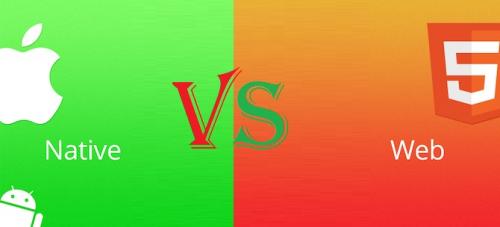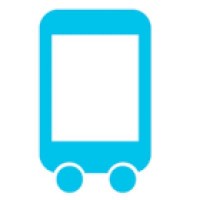The Native App vs Web App Clash for Developing an Uber Clone

The Internet has opened up a whole new world of potential opportunities and innovation for service providers and consumers. By offering services like an Uber digitally, providers can reduce their operating costs and elevate user experience to a new level. However, with the world gravitating towards smartphones, it has become imperative that entrepreneurs and marketers looking to provide Uber-like services, to focus beyond websites. And, this is where the question emerges, whether a digital service provider should opt for a native app or web app?
If you consider the Uber app, it is a native app. From its inception, it was meant to be a mobile app. While Uber has a website, there is not much to do there. It functions as a basic landing page and website visitors are encouraged to download the app and also understand how the app would benefit them. So if you intend to get an Uber-like app developed, it is best to opt for a native app than a web app. Here is our take on why this will be a smart decision to make.
● GPS
Imagine a web app. When it comes to identifying the actual location of the user, all you get is the location based on the user’s IP address. This will make coordination between the passenger and driver complicated, and you can’t possibly expect your customer to carry his laptop or desktop with them!
A native app allows you to integrate GPS into the app so that both the driver and passenger know exactly where they are. This accuracy is important for prompt service and safety of all involved. Your customers get real-time information - the driver can send notification when they arrive at the customer’s location.
● Speed Matters
Today, people look for the fastest way to get things done. It is easier to bank using your smartphone or handheld device than actually sit in front of the computer. The reason is very simple. People always have their mobile devices with them, and with mobile internet speeds improving constantly, a mobile device is the best source to search for information, purchase things and check out orders.
Rather than entering the URL and filling out a form, an app makes it so easy to order what you want and at your convenience. In case of an Uber-like service, it makes sense to ensure your customers are served quickly and you can get this speed just from a native app rather than a web app.
● Customization
It is not all about speed. Remember, it is important even over the internet to establish a rapport with your customers. A native app lets you send customized and personalized notifications and alerts to customer base. You can keep a line of communication open even if customers are not using the app.
So for a Uber clone, it is important that the passenger gets alerts that the cab driver is on the way along with the approximate time of arrival. The best part is when the cab reaches the customer’s place of pick up, another personalized notification is sent to let the customer know that the cab and driver are waiting for them. Unfortunately, with a web app this isn’t possible as the customer would have to sit at the computer the entire time waiting for messages and alerts, something that is not only impractical, but also impossible.
To conclude, we strongly believe that if you are planning on crafting an Uber clone, it is best to opt for a native app instead of a web app.
If you consider the Uber app, it is a native app. From its inception, it was meant to be a mobile app. While Uber has a website, there is not much to do there. It functions as a basic landing page and website visitors are encouraged to download the app and also understand how the app would benefit them. So if you intend to get an Uber-like app developed, it is best to opt for a native app than a web app. Here is our take on why this will be a smart decision to make.
● GPS
Imagine a web app. When it comes to identifying the actual location of the user, all you get is the location based on the user’s IP address. This will make coordination between the passenger and driver complicated, and you can’t possibly expect your customer to carry his laptop or desktop with them!
A native app allows you to integrate GPS into the app so that both the driver and passenger know exactly where they are. This accuracy is important for prompt service and safety of all involved. Your customers get real-time information - the driver can send notification when they arrive at the customer’s location.
● Speed Matters
Today, people look for the fastest way to get things done. It is easier to bank using your smartphone or handheld device than actually sit in front of the computer. The reason is very simple. People always have their mobile devices with them, and with mobile internet speeds improving constantly, a mobile device is the best source to search for information, purchase things and check out orders.
Rather than entering the URL and filling out a form, an app makes it so easy to order what you want and at your convenience. In case of an Uber-like service, it makes sense to ensure your customers are served quickly and you can get this speed just from a native app rather than a web app.
● Customization
It is not all about speed. Remember, it is important even over the internet to establish a rapport with your customers. A native app lets you send customized and personalized notifications and alerts to customer base. You can keep a line of communication open even if customers are not using the app.
So for a Uber clone, it is important that the passenger gets alerts that the cab driver is on the way along with the approximate time of arrival. The best part is when the cab reaches the customer’s place of pick up, another personalized notification is sent to let the customer know that the cab and driver are waiting for them. Unfortunately, with a web app this isn’t possible as the customer would have to sit at the computer the entire time waiting for messages and alerts, something that is not only impractical, but also impossible.
To conclude, we strongly believe that if you are planning on crafting an Uber clone, it is best to opt for a native app instead of a web app.
Advertise on APSense
This advertising space is available.
Post Your Ad Here
Post Your Ad Here





Comments